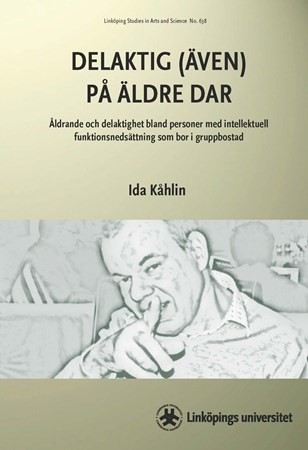Group homes here means housing under the Act concerning Support and Service for Persons with Certain Functional Disabilities (LSS), and “older people” encompasses individuals above the age of 50. The overall aim is to contribute to the understanding of participation in the home environment as a consequence of ageing and of the physical and social housing context, with respect to the project’s specific target group – older people with intellectual disabilities.
The project, which is due to be completed during 2015/2016, is based on qualitative interviews with and participant observations of older people living in group housing under the Act concerning Support and Service for Persons with Certain Functional Disabilities (LSS), as well as with staff and managers working there.
Ageing – a physical phenomenon
The results of the project show that there are differences between how older people with intellectual disabilities themselves experience being old and ageing and how this is described by the Group home staff.
The results also show that the themes of ageing and being old are not given any space in the everyday discussions in the Group home, where ageing is regarded primarily as a physical phenomenon. The project’s studies also highlight how the housing unit’s formal organisation culture is weak in relation to growing older and being old with an intellectual disability. This is because the staff feel that there is a lack of preparation, discussion and working methods for how support towards participation is to be offered the older residents. However, the results show that residents’ age is significant for the staff’s conceptions and approach regarding participation among older residents. This participation is described and operationalized in part as a socially contextual doing, and in part as a striving to create a sense of coherence and security in the Group home.
In addition to this, it emerges that the unique experiences of the generation under study – of having lived a long life with an intellectual disability – become significant for how participation features in the Group home and for how it is described by both residents and staff.




